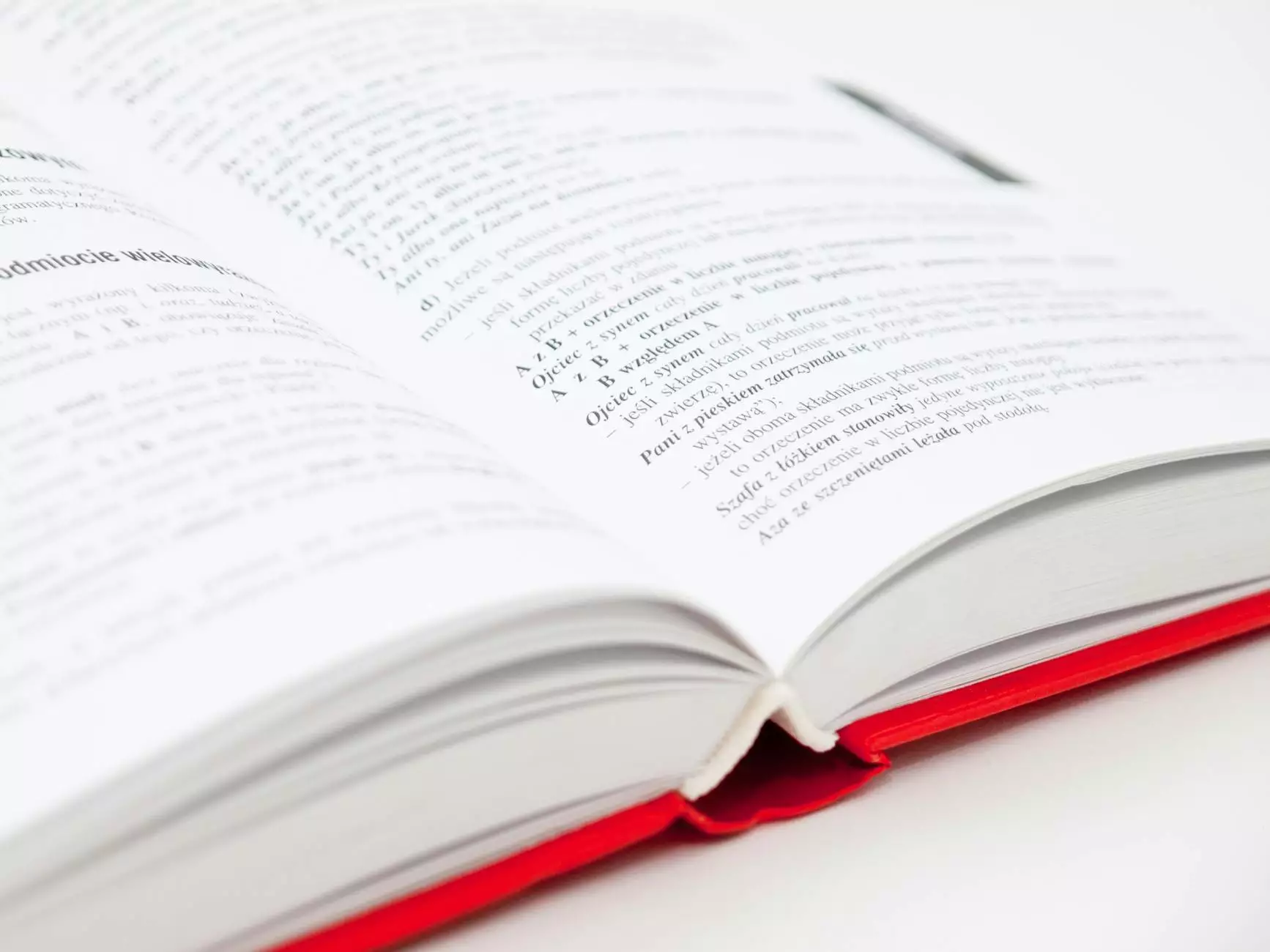How Copyright Law Applies to Data and Scientific Papers
Blog
Overview
Welcome to Jacques H Geisenberger, Jr PC, your trusted resource for comprehensive insights into the application of copyright law in the business and consumer services - consulting & analytical services industry.
In this article, we delve into the intricacies of copyright protection as it relates to data and scientific papers. As technology continues to evolve, the digital landscape poses unique challenges in safeguarding intellectual property. Our expert team provides valuable guidance, highlighting key considerations for researchers, scientists, and data-driven organizations.
The Importance of Copyright Protection
Copyright protection plays a crucial role in safeguarding intellectual creations, including data and scientific papers. By establishing exclusive rights, it allows creators to control the distribution, reproduction, and monetization of their work. Without proper copyright protection, valuable research and scientific advancements may be vulnerable to unauthorized use and exploitation.
Understanding Copyright Law
In the digital age, navigating copyright law can be complex. However, staying informed about its fundamental principles is essential for ensuring compliance and protecting your intellectual property rights.
Fair Use and Fair Dealing
In certain circumstances, the fair use doctrine allows limited use of copyrighted material without permission from the copyright holder. Factors determining fair use include the purpose and character of the use, the nature of the copyrighted work, the amount and substantiality of the portion used, and the effect on the potential market.
Similarly, fair dealing provisions, which vary across jurisdictions, allow the use of copyrighted material for specific purposes such as research, education, or critique. Familiarize yourself with the fair use and fair dealing exceptions applicable in your jurisdiction to ensure responsible and lawful utilization of copyrighted data and scientific papers.
Copyright Ownership
Understanding copyright ownership is crucial to determine your rights and obligations. Generally, the original creator of a piece of work automatically owns the copyright. However, in cases where work is created as part of employment or under a contract, the employer or commissioning party may hold the copyright.
It is essential to review and clarify copyright ownership agreements to avoid any disputes or infringement allegations. Our team at Jacques H Geisenberger, Jr PC can provide comprehensive guidance tailored to your specific circumstances.
Protecting Your Data and Scientific Papers
Protecting your data and scientific papers requires a multi-faceted approach. By implementing the following strategies, you can mitigate the risk of unauthorized access, replication, and misuse:
1. Copyright Registration
Registering your data and scientific papers with the relevant copyright authorities strengthens your legal standing in case of infringement. Proper registration provides public notice of your ownership and facilitates legal action to enforce your rights.
2. Data Encryption
Encrypting your data using secure protocols ensures its confidentiality and helps prevent unauthorized access. Robust encryption methods significantly enhance the security of data, rendering it more challenging to exploit.
3. Access Control
Implementing robust access control measures safeguards your data from unauthorized viewing or modification. This includes utilizing strong authentication mechanisms, limiting user permissions, and regularly reviewing access privileges.
4. Licensing Agreements
Consider implementing licensing agreements to regulate the usage and distribution of your data and scientific papers. Such agreements allow you to grant or restrict specific permissions, ensuring responsible utilization while protecting your rights.
Conclusion
Understanding how copyright law applies to data and scientific papers is vital for researchers, scientists, and data-driven organizations. Jacques H Geisenberger, Jr PC is your trusted partner, providing expert insights and guidance to navigate the intricacies of copyright protection in the digital age.
By staying informed and implementing robust protection strategies, you can safeguard your intellectual property and advance your research and scientific endeavors with confidence.










